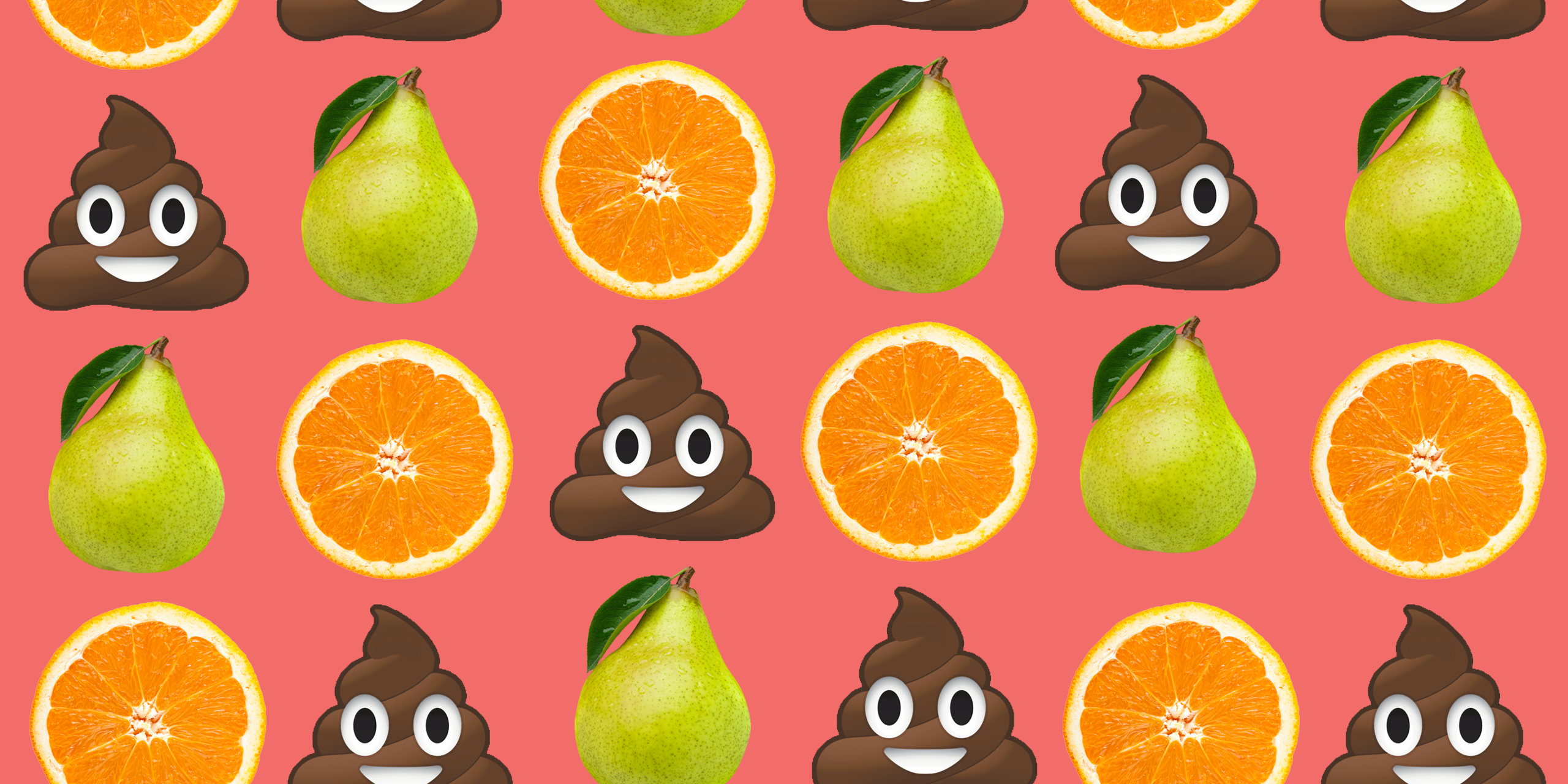Kick Constipation to the Curb: The Fiber-Fueled Solution

Picture this: You're sitting on your throne, patiently waiting for nature's call, but alas, nothing happens. The struggle against constipation is real, and it can be quite a pain in the you-know-what.
But fear not! In this article, we'll dive into the science behind constipation and the powerful role of fiber in getting things moving smoothly. So grab a comfortable seat and let's embark on a journey to conquer constipation!
Understanding the Science:
Fiber Fiber Fiber!
Constipation occurs when your bowel movements become infrequent or difficult. It can leave you feeling bloated, uncomfortable, and downright frustrated. But fear not, for the solution lies within the magical world of fiber.
Fiber is the unsung hero when it comes to digestive health. It adds bulk to your stool, making it easier to pass through the intestinal tract. But how does fiber work its magic? Well, it comes in two forms: soluble and insoluble.
Soluble fiber acts like a sponge, absorbing water and forming a gel-like substance in your digestive system. This softens the stool, making it easier to pass. Insoluble fiber, on the other hand, adds bulk to your stool and helps speed up its journey through the intestines.
Stress and constipation:

Now, let's dive into the connection between stress and constipation. We all know that stress can wreak havoc on our mental and emotional well-being, but it can also have a profound impact on our digestive system.
When you're under stress, your body goes into "fight or flight" mode, releasing stress hormones like cortisol. These hormones can affect the functioning of your gastrointestinal tract, causing it to slow down. This slowdown can lead to constipation, as the movement of stool through the intestines becomes sluggish.
But that's not all. Stress can also disrupt your eating patterns and lead to poor dietary choices. Many people turn to comfort foods high in fat and sugar when they're stressed, which can contribute to constipation. Additionally, stress can affect your hydration levels, as you may forget to drink enough water throughout the day. Dehydration can make your stools harder and more difficult to pass. Read The Impact of Stress on Metabolism and Weight where I dive deeper into stress.
So, how can you combat stress-induced constipation? It's all about finding effective stress management techniques and incorporating them into your daily routine. Here are a few strategies to consider:
- Exercise: Engage in regular physical activity to reduce stress and stimulate bowel movements. Whether it's going for a walk, practicing yoga, or hitting the gym, find an exercise that brings you joy and helps you unwind.
- Relaxation Techniques: Explore relaxation techniques such as deep breathing exercises, meditation, or mindfulness. These practices can help calm your mind and promote healthy digestion.
- Prioritize Self-Care: Make time for activities that bring you joy and help you relax. Whether it's reading a book, taking a warm bath, or spending time with loved ones, self-care is crucial for managing stress and promoting overall well-being.
- Get Adequate Sleep: Ensure you're getting enough quality sleep each night. Sleep deprivation can exacerbate stress and negatively impact your digestive system.
- Seek Support: Reach out to a trusted friend, family member, or professional if you're feeling overwhelmed by stress. Sometimes, talking through your concerns can provide relief and help you find practical solutions.
- Top 10 Ways to Reduce Stress and Improve Mental Health
By managing stress levels and incorporating stress-reducing techniques into your daily life, you can support a healthy digestive system and minimize the risk of constipation.
Remember, constipation is a common issue that can often be alleviated with simple dietary and lifestyle modifications. However, if you experience chronic or severe constipation, it's important to consult with your healthcare provider for a comprehensive evaluation and personalized treatment plan. Reach out to me today and let's embark on this journey towards better digestive health together. Don't let constipation hold you back from living your best life. Remember, help is just a click or a call away.

Top 10 Foods for Constipation:
Now that we've unraveled the science, let's explore some practical ways to incorporate fiber into your diet and bid farewell to constipation:
- Apples: An apple a day keeps constipation at bay! Apples are packed with both soluble and insoluble fiber, promoting healthy digestion and regular bowel movements.
- Pears: Juicy and delicious, pears are another fantastic source of fiber. Enjoy them as a snack or incorporate them into salads for an extra dose of digestive goodness.
- Berries: Blueberries, raspberries, strawberries—take your pick! These colorful little powerhouses are bursting with fiber and antioxidants, making them a tasty addition to your constipation-fighting arsenal.
- Spinach: Popeye was onto something with his love for spinach. This leafy green not only provides essential nutrients but is also a great source of fiber to keep things moving smoothly.
- Whole Grain Bread: Swap out white bread for whole grain bread to boost your fiber intake. Look for bread that contains whole wheat, oats, or other whole grains for maximum benefits.
- Quinoa: Quinoa, often hailed as a superfood, is not only a complete protein but also a fiber-rich grain. Incorporate it into your meals as a side dish, in salads, or as a base for hearty bowls.
- Beans: Beans, beans, the magical fruit, the more you eat, the more you... improve your digestion! Beans, such as lentils, chickpeas, and kidney beans, are brimming with fiber and can be used in soups, stews, or as a main dish.
- Chia Seeds: These tiny seeds may be small, but they pack a fiber punch. Add them to smoothies, yogurt, or sprinkle them on top of your favorite dishes for an extra fiber boost.
- Psyllium Husk: Psyllium husk, as mentioned in one of the links, is a soluble fiber supplement that can be mixed with water or added to smoothies. It acts as a gentle yet effective bulking agent to alleviate constipation.
- Flaxseeds: Flaxseeds are not only rich in omega-3 fatty acids but also a good source of fiber. Grind them and add them to baked goods, oatmeal, or yogurt for a delightful crunch and a fiber boost.
- Hydrate, Hydrate, Hydrate: Remember to drink plenty of water throughout the day. Fiber needs water to work its magic effectively. Aim for at least eight cups of water per day to keep things flowing smoothly.
As you embark on your fiber-filled journey, take a moment to reflect on your current eating habits and identify areas where you can make small changes. Start by adding one fiber-rich food to each meal and gradually increase your intake over time. Keep track of how your body responds and make adjustments as needed.
Remember, Rome wasn't built in a day, and neither will your fiber-fueled routine. Be patient with yourself and celebrate small victories along the way. Your digestive system will thank you for the extra TLC!
Congratulations, my fellow warriors against constipation! Armed with the knowledge of fiber's incredible powers, you now have the tools to kick constipation to the curb. By incorporating fiber-rich foods, embracing whole grains and legumes, and considering supplements like psyllium, you can ensure regularity and a life free from the tyranny of constipation.

So, the next time you find yourself in a battle with your bowels, remember that fiber is your secret weapon. Embrace its power and make it a permanent resident on your plate. And don't forget to hydrate like a champion to keep things moving smoothly.
But let's not end our journey here. Take a moment to reflect on your own dietary habits and lifestyle choices. Are there any other factors that may contribute to constipation, such as lack of physical activity or certain medications? Consider incorporating regular exercise into your routine and speak with your healthcare provider about any concerns you may have.
And hey, life is all about balance, right? While fiber is essential for digestive health, it's important not to go overboard. Too much fiber too quickly can cause bloating and gas, leaving you feeling like a human hot air balloon. So, start slow, listen to your body, and gradually increase your fiber intake over time.
In the end, conquering constipation is not just about what you put on your plate, but also about creating a holistic approach to your well-being. Remember to manage stress levels, prioritize self-care, and cultivate a healthy relationship with food.
So, my friends, armed with the knowledge of fiber's superhero abilities, go forth and conquer constipation with a smile on your face and a spring in your step. Your digestive system will thank you, and you'll be able to enjoy life to the fullest, unburdened by the discomfort of constipation.
Now, let's raise our glasses (of water, of course) to a future filled with smooth sailing in the bathroom and a happy, healthy gut. Cheers to you and your fiber-fueled journey!